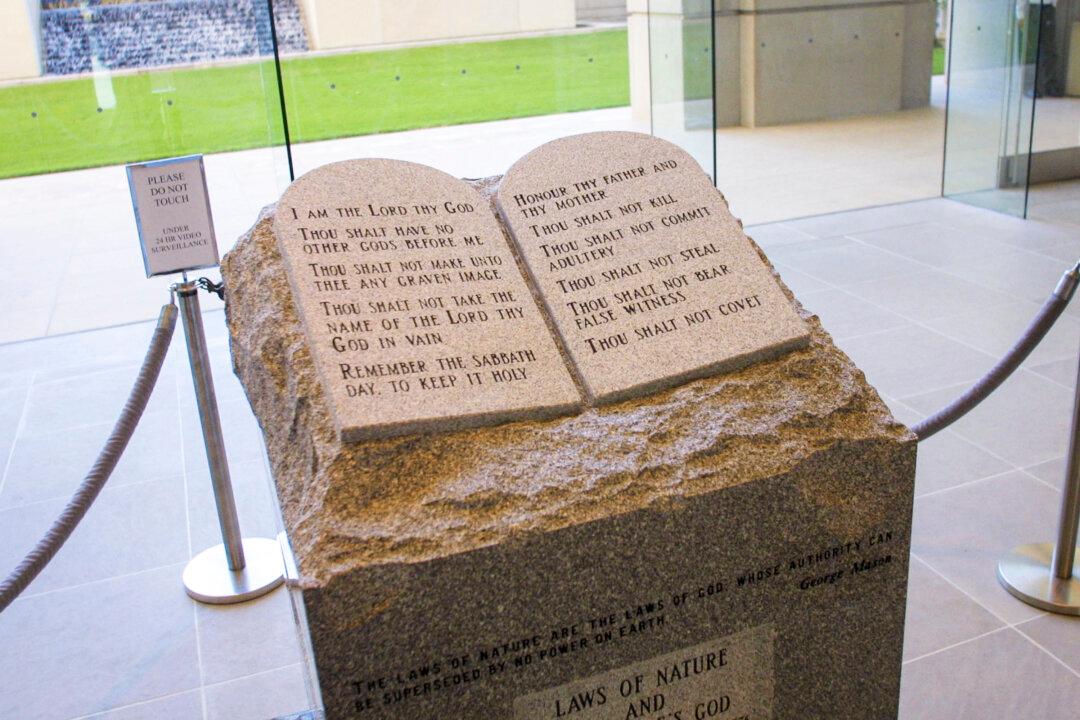Louisiana has become the first state to enact a law mandating that the Ten Commandments be prominently displayed at all public schools and colleges.
Under legislation that became law on June 19, Louisiana schools that receive state funds will have to display the Ten Commandments “in each building it uses and classroom in each school under its jurisdiction.”





